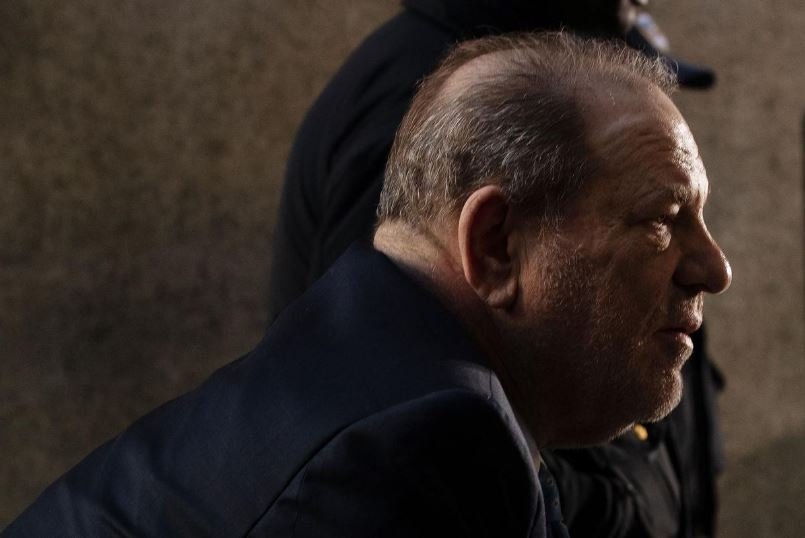
At the start of the case in January, Weinstein’s legal team objected to which jurors were chosen and what evidence the jury was allowed to hear.
They accused the judge of bias, the prosecutors of withholding evidence, and the media of turning the trial into a circus. They also unsuccessfully tried to boot a juror who wrote a book about young women and predatory older men.
All of these issues offer potential grounds for Weinstein to challenge his conviction. Weinstein’s lawyers said he would appeal but it was not immediately clear what approach they would take.
Weinstein, 67, was convicted of sexually assaulting former production assistant Mimi Haleyi in 2006 and raping Jessica Mann, a onetime aspiring actor, in 2013. He faces up to 25 years in prison.
Weinstein was acquitted on the most serious charges that could have sent him to prison for the rest of his life.
Haleyi and Mann both testified, and three other women described for the jury what prosecutors characterized as Weinstein’s signature pattern of behavior: luring women to hotel rooms or his apartment to discuss film roles, then attacking them.
Weinstein’s lawyers had asked Justice James Burke to bar two of the three from testifying.
"My guess is they’re going to argue the judge went too far, allowed too many of these witnesses to testify,” said Bennett Gershman, a former prosecutor and Pace University law professor.
Jurors were instructed that the three women’s testimony could only be used as evidence of Weinstein’s intent, not propensity to commit sexual assault, but Roger Stavis, a New York criminal defense lawyer, said the defense could argue that it unduly prejudiced the jury.
“It just feeds into a narrative that this is a bad guy,” Stavis said.
Weinstein may also try to argue that his conviction should be overturned because of unfair publicity surrounding the case and alleged bias against him.
His defense lawyers unsuccessfully petitioned to have the case moved out of Manhattan, blaming the media for creating a “carnival-like” atmosphere.
They later moved for a mistrial after a prosecutor, in her opening statement, called Weinstein a “predatory monster” and his conduct “disgusting”
And in an opinion article for Newsweek just two days before deliberations began, Donna Rotunno, one of Weinstein’s lawyers, cited the media’s “mocking of Mr. Weinstein’s walker” and “unflattering courtroom-artist sketches of his body” as further examples of media bias.
One juror, the woman who wrote an upcoming novel involving teenage girls and predatory older men, also is likely to be an issue on appeal.
Weinstein’s defense tried to exclude her from the jury at the outset of the case, arguing she was not forthcoming about the subject of her book when she was questioned by lawyers.
They renewed their bid to strike her from the panel when jury deliberations began, citing an online review she wrote during the trial about “My Dark Vanessa,” the story of a woman who in the #MeToo era re-evaluates a relationship she had with her teacher when she was 15 years old.
“If a juror can be shown to be biased, who lied, maybe, during voir dire, that certainly is a place that might be a reversible error,” Gershman said. Voir dire is the legal term for the questioning of potential jurors.
Weinstein’s legal problems are far from over.
Beyond the Manhattan courtroom, Weinstein still faces sexual assault charges in California, which were announced just hours after his New York rape trial began, and dozens of women have filed civil lawsuits against him.
Have something to add to the story? Share it in the comments below.




1731916090-0/sabrina-(3)1731916090-0-165x106.webp)

1732012836-0/Express-Tribune-(9)1732012836-0-270x192.webp)
1732005713-0/Express-Tribune-(6)1732005713-0-270x192.webp)


1732004244-0/Untitled-design-(13)1732004244-0-270x192.webp)






COMMENTS
Comments are moderated and generally will be posted if they are on-topic and not abusive.
For more information, please see our Comments FAQ